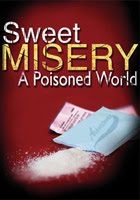Source - New York Times
It is a question asked repeatedly across America: why, in the aftermath of a financial mess that generated hundreds of billions in losses, have no high-profile participants in the disaster been prosecuted?
 Answering such a question — the equivalent of determining why a dog did not bark — is anything but simple. But a private meeting in mid-October 2008 between Timothy F. Geithner, then-president of the Federal Reserve Bank of New York, and Andrew M. Cuomo, New York’s attorney general at the time, illustrates the complexities of pursuing legal cases in a time of panic.
Answering such a question — the equivalent of determining why a dog did not bark — is anything but simple. But a private meeting in mid-October 2008 between Timothy F. Geithner, then-president of the Federal Reserve Bank of New York, and Andrew M. Cuomo, New York’s attorney general at the time, illustrates the complexities of pursuing legal cases in a time of panic.At the Fed, which oversees the nation’s largest banks, Mr. Geithner worked with the Treasury Department on a large bailout fund for the banks and led efforts to shore up the American International Group, the giant insurer. His focus: stabilizing world financial markets.
Mr. Cuomo, as a Wall Street enforcer, had been questioning banks and rating agencies aggressively for more than a year about their roles in the growing debacle, and also looking into bonuses at A.I.G.
Friendly since their days in the Clinton administration, the two met in Mr. Cuomo’s office in Lower Manhattan, steps from Wall Street and the New York Fed. According to three people briefed at the time about the meeting, Mr. Geithner expressed concern about the fragility of the financial system.
His worry, according to these people, sprang from a desire to calm markets, a goal that could be complicated by a hard-charging attorney general.
Asked whether the unusual meeting had altered his approach, a spokesman for Mr. Cuomo, now New York’s governor, said Wednesday evening that “Mr. Geithner never suggested that there be any lack of diligence or any slowdown.” Mr. Geithner, now the Treasury secretary, said through a spokesman that he had been focused on A.I.G. “to protect taxpayers.”
Whether prosecutors and regulators have been aggressive enough in pursuing wrongdoing is likely to long be a subject of debate. All say they have done the best they could under difficult circumstances.
But several years after the financial crisis, which was caused in large part by reckless lending and excessive risk taking by major financial institutions, no senior executives have been charged or imprisoned, and a collective government effort has not emerged. This stands in stark contrast to the failure of many savings and loan institutions in the late 1980s. In the wake of that debacle, special government task forces referred 1,100 cases to prosecutors, resulting in more than 800 bank officials going to jail. Among the best-known: Charles H. Keating Jr., of Lincoln Savings and Loan in Arizona, and David Paul, of Centrust Bank in Florida.
Former prosecutors, lawyers, bankers and mortgage employees say that investigators and regulators ignored past lessons about how to crack financial fraud.
As the crisis was starting to deepen in the spring of 2008, the Federal Bureau of Investigation scaled back a plan to assign more field agents to investigate mortgage fraud. That summer, the Justice Department also rejected calls to create a task force devoted to mortgage-related investigations, leaving these complex cases understaffed and poorly funded, and only much later established a more general financial crimes task force.
Leading up to the financial crisis, many officials said in interviews, regulators failed in their crucial duty to compile the information that traditionally has helped build criminal cases. In effect, the same dynamic that helped enable the crisis — weak regulation — also made it harder to pursue fraud in its aftermath.
A more aggressive mind-set could have spurred far more prosecutions this time, officials involved in the S.&L. cleanup said.
“This is not some evil conspiracy of two guys sitting in a room saying we should let people create crony capitalism and steal with impunity,” said William K. Black, a professor of law at University of Missouri, Kansas City, and the federal government’s director of litigation during the savings and loan crisis. “But their policies have created an exceptional criminogenic environment. There were no criminal referrals from the regulators. No fraud working groups. No national task force. There has been no effective punishment of the elites here.”
Even civil actions by the government have been limited. The Securities and Exchange Commission adopted a broad guideline in 2009 — distributed within the agency but never made public — to be cautious about pushing for hefty penalties from banks that had received bailout money. The agency was concerned about taxpayer money in effect being used to pay for settlements, according to four people briefed on the policy but who were not authorized to speak publicly about it.
To be sure, Wall Street’s role in the crisis is complex, and cases related to mortgage securities are immensely technical. Criminal intent in particular is difficult to prove, and banks defend their actions with documents they say show they operated properly.
But legal experts point to numerous questionable activities where criminal probes might have borne fruit and possibly still could.
Investigators, they argue, could look more deeply at the failure of executives to fully disclose the scope of the risks on their books during the mortgage mania, or the amounts of questionable loans they bundled into securities sold to investors that soured.
Prosecutors also could pursue evidence that executives knowingly awarded bonuses to themselves and colleagues based on overly optimistic valuations of mortgage assets — in effect, creating illusory profits that were wiped out by subsequent losses on the same assets. And they might also investigate whether executives cashed in shares based on inside information, or misled regulators and their own boards about looming problems.
Merrill Lynch, for example, understated its risky mortgage holdings by hundreds of billions of dollars. And public comments made by Angelo R. Mozilo, the chief executive of Countrywide Financial, praising his mortgage company’s practices were at odds with derisive statements he made privately in e-mails as he sold shares; the stock subsequently fell sharply as the company’s losses became known.
Executives at Lehman Brothers assured investors in the summer of 2008 that the company’s financial position was sound, even though they appeared to have counted as assets certain holdings pledged by Lehman to other companies, according to a person briefed on that case. At Bear Stearns, the first major Wall Street player to collapse, a private litigant says evidence shows that the firm’s executives may have pocketed revenues that should have gone to investors to offset losses when complex mortgage securities soured.
But the Justice Department has decided not to pursue some of these matters — including possible criminal cases against Mr. Mozilo of Countrywide and Joseph J. Cassano, head of Financial Products at A.I.G., the business at the epicenter of that company’s collapse. Mr. Cassano’s lawyers said that documents they had given to prosecutors refuted accusations that he had misled investors or the company’s board. Mr. Mozilo’s lawyers have said he denies any wrongdoing.
Among the few exceptions so far in civil action against senior bankers is a lawsuit filed last month against top executives of Washington Mutual, the failed bank now owned byJPMorgan Chase. The Federal Deposit Insurance Corporation sued Kerry K. Killinger, the company’s former chief executive, and two other officials, accusing them of piling on risky loans to grow faster and increase their compensation. The S.E.C. also extracted a $550 million settlement from Goldman Sachs for a mortgage security the bank built, though the S.E.C. did not name executives in that case.
Representatives at the Justice Department and the S.E.C. say they are still pursuing financial crisis cases, but legal experts warn that they become more difficult as time passes.
“If you look at the last couple of years and say, ‘This is the big-ticket prosecution that came out of the crisis,’ you realize we haven’t gotten very much,” said David A. Skeel, a law professor at the University of Pennsylvania. “It’s consistent with what many people were worried about during the crisis, that different rules would be applied to different players. It goes to the whole perception that Wall Street was taken care of, and Main Street was not.”
Continue reading at the New York Times...
There are charts, infographics, multimedia that accompany this story.
At issue is Tim Geithner's criminal behavior in orchestrating the AIG bailout to favor Goldman Sachs through counterparty payouts at par, and then the massive cover-up






























No comments:
Post a Comment